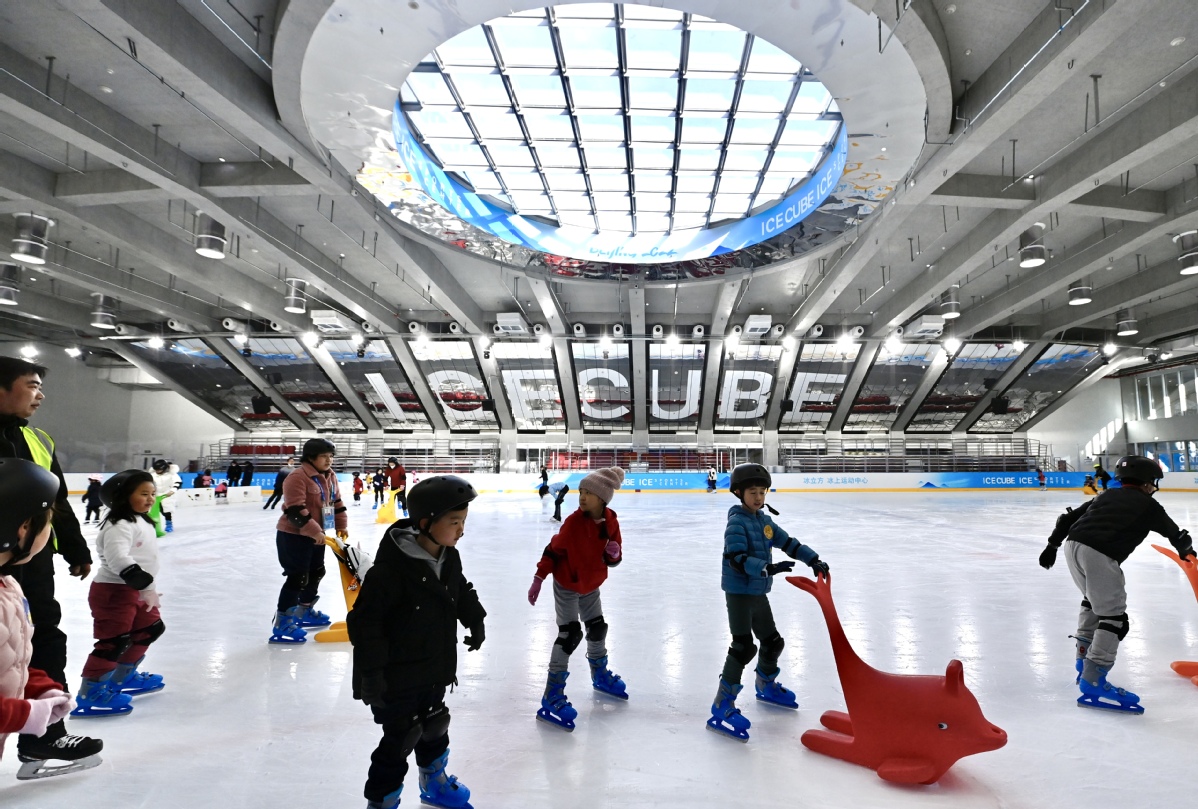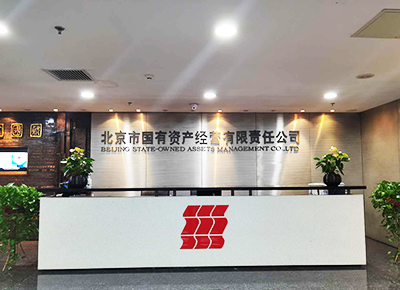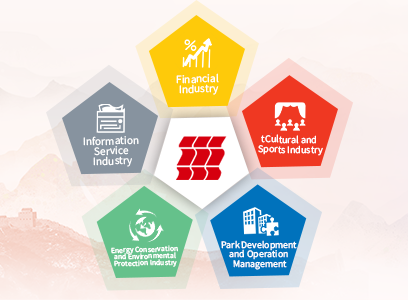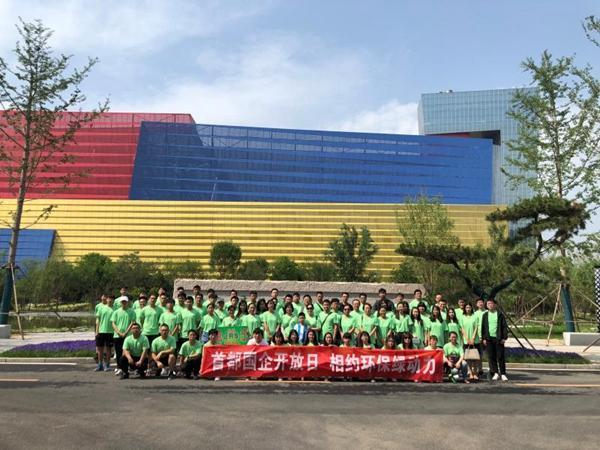 Tourists experience ice sports during the first anniversary of the Winter Olympics at the "Ice Cube" in Beijing on Feb 4, 2023. [Photo by Wei Xiaohao/chinadaily.com.cn]
Tourists experience ice sports during the first anniversary of the Winter Olympics at the "Ice Cube" in Beijing on Feb 4, 2023. [Photo by Wei Xiaohao/chinadaily.com.cn]
The success of the 2022 Beijing Winter Olympics has underscored the adept fusion of sports cultures in the capital and Zhangjiakou, Hebei province, with venues being leveraged for a sustainable post-Olympics economy.
This has also provided the public with more choices for winter activities.
Since the Games concluded, three iconic venues in Beijing — the National Stadium, also known as the Bird's Nest, the National Aquatics Center, or Ice Cube, and the National Speed Skating Oval — have embarked on a new phase.
Guo Zhiguo, deputy general manager of Beijing State-Owned Assets Management Co, which operates the three venues, said that more than 6.1 million people have visited those sites since the Winter Olympics, reflecting a revived fascination with winter sports.
The National Aquatics Center, which was transformed from the Water Cube used in the 2008 Beijing Summer Olympics to the Ice Cube for the 2022 Winter Games, is now a captivating cultural hub that displays historic moments of swimming excellence and showcases China's innovative competence during the Winter Olympics competitions.
"The legacy of the Winter Olympics are precious, so that we hope those venues, facilities, related knowledge and cultures can continue to bring value to the public," said Yang Qiyong, general manager of the National Swimming Center.
In 2023, the arena welcomed about 2 million people, including sports enthusiasts, travelers and students who came for study tours, according to Yang. Based on cooperation with the World Curling Federation, the venue is improving the domestic curling training system, developing training programs for Chinese teenagers, and planning to host international curling competitions in the future.
"The rising public enthusiasm for sports, leisure and fitness will continue to improve the (venues') reuse and development," he said.
Dong Jingxuan, a primary school student who participated in a charity art event at the Ice Cube this year, said the venue's spacious design and high-tech facilities impressed him, and he was surprised that an art exhibition could be held in such a place.
While Beijing's venues function more like cultural hubs and public sports facilities, their counterparts in Zhangjiakou are attracting tens of thousands of winter sports lovers, who are poised to weave sporting prowess and winter splendor into the tapestry of the city's cultural landscape.
Fulong Snow Park, which housed the world's top athletes during the Beijing Winter Olympics, has been transformed into a vibrant residential and recreational area named Fulong Four Seasons Resort.
Nestled amid a picturesque landscape, the village stands as a beacon of sustainable urban planning, featuring eco-friendly housing and spaces designed to foster a sense of a skiing community.
Liu Qian, a skier from Beijing, said she loves Zhangjiakou's Chongli district, where the ski resorts are located.
"I always go to Chongli for skiing because of its high-end facilities and short distance from Beijing," she said.
During the current snow season, the total tourist visits to Chongli reached 1.08 million, generating 1.23 billion yuan ($173 million) between Nov 8 and Dec 18, according to the Chongli government.
Genting Snow Park, where freestyle skiing and snowboard events at the 2022 Winter Olympics were held, underwent a full upgrade this snow season, further optimizing the experience for visitors.
"Competing on Winter Olympics grounds is exhilarating," said Xu Ziying, a primary school student who participated in a skiing game at the park. "The snow here feels better, enhancing my overall performance."
According to the park, 41 snow tracks, including junior and senior tracks, will be fully open to skiers by late December.
Shi Yuwei contributed to this story.






